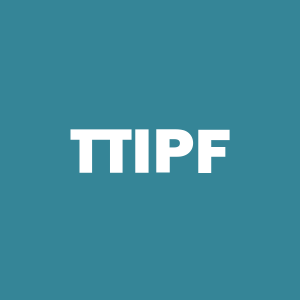Thiogenesis Reports Positive Interim Phase 2 Trial Results for MELAS and Announces Pipeline Advancements in Leigh Syndrome and Cystinosis
Rhea-AI Summary
Thiogenesis (OTCQX: TTIPF) reported positive blinded interim Phase 2 results for TTI-0102 in MELAS on November 4, 2025. The analysis covers nine patients (six active, three placebo) and shows biological proof-of-concept, dose discovery and biomarker improvements with clear differentiation among active patients.
Four patients under 50 kg discontinued for dose-dependent side effects, prompting planned dual dosing regimens for different weight cohorts. Final 6-month Radboud data are expected by January 2026 and an IMPD filing to enable a pivotal Phase 3 in Europe is planned for 2026. FDA accepted an IND for Leigh syndrome and a planned IND for nephropathic cystinosis targets a Phase 3 non-inferiority trial.
Positive
- Blinded interim data showed biological proof-of-concept
- Enrollment met thresholds for dose discovery and proof-of-concept
- FDA accepted IND for Leigh syndrome in June 2025
- Planned IMPD filing to enable Phase 3 MELAS in 2026
- Planned Phase 3 non-inferiority cystinosis trial versus cysteamine
Negative
- Four patients under 50 kg discontinued due to dose-dependent side effects
- Current Phase 2 interim sample size was nine patients, limiting confidence
- Dosing regimen requires refinement for lighter-weight patients
Trial achieved biological proof-of-concept, dose discovery and biomarker improvement
San Diego, California--(Newsfile Corp. - November 4, 2025) - Thiogenesis Therapeutics, Corp. (TSXV: TTI) (OTCQX: TTIPF) ("Thiogenesis" or the "Company") a clinical-stage biotechnology company developing sulfur-based therapeutics for pediatric diseases, predominantly those involving mitochondrial dysfunction, today announced interim results from its Phase 2 clinical trial of TTI-0102 for Mitochondrial Encephalopathy, Lactic Acidosis, and Stroke-like Episodes or MELAS, which is being conducted at Radboud University in the Netherlands and CHU Angers in France. The Company also provided updates regarding its progress and planning related to its Leigh syndrome spectrum and nephropathic cystinosis clinical programs.
Positive Interim Data: MELAS Phase 2 Clinical Trial
The blinded interim analysis is based on the first three months of data from the Company's placebo-controlled Phase 2 MELAS clinical trial. The trial included nine patients: six randomized to Thiogenesis' proprietary TTI-0102 lead compound and three to placebo. The goals of the Phase 2 trial are to provide biological proof-of-concept, dose discovery, biomarker activity and early efficacy.
The Phase 2 clinical trial continues with five active patients weighing over 70 kg, two receiving TTI-0102 and three on placebo. TTI-0102 has been well tolerated within the group, consistent with previous Phase 1 clinical trial results in healthy adults as announced in May 2022. The interim analysis also included data from four patients under 50 kg who left the study due to dose-dependent side effects, underscoring the need to refine dosing protocols. The Company plans to adopt two dosing regimens in upcoming clinical trials: the current regimen used for larger patients that is in-line with its ongoing Phase 2 MELAS study and a single reduced dosage for lighter patients.
Individual biomarker and efficacy data remain confidential pending potential publication in early 2026. The interim data provide clear biological differentiation among the five active patients and indicate significant support for TTI-0102's mitochondrial antioxidant and restorative activity.
"The interim data are highly encouraging and demonstrate that TTI-0102 is well tolerated at the appropriate dosing regimen, while producing meaningful biomarker improvements that validate our therapeutic approach for multiple conditions associated with mitochondrial dysfunction," said Dr. Patrice Rioux, Chief Executive Officer of Thiogenesis, "Enrollment has now met the required thresholds for both dose discovery and proof-of-concept objectives. These results also reinforce our strategy to advance TTI-0102 into a pivotal Phase 3 study in MELAS and helps guide dosing across our broader mitochondrial and metabolic disease programs."
Pipeline Updates: MELAS, Leigh Syndrome Spectrum and Nephropathic Cystinosis
MELAS
Final 6-month data from the Radboud cohort are anticipated by January 2026, including the potential for a peer reviewed publication, encompassing both biomarker and clinical efficacy endpoints. Based on interim findings, the Company plans to file an Investigational Medicinal Product Dossier or IMPD to initiate a pivotal Phase 3 MELAS clinical trial in Europe in 2026.
Leigh Syndrome Spectrum
In June 2025, the U.S. Food and Drug Administration or FDA accepted Thiogenesis' Investigational New Drug or IND application. The Company is finalizing drug manufacturing and Institutional Review Board or IRB approval for a Phase 2 clinical trial expected to start in early 2026 in Leigh syndrome spectrum, in collaboration with a leading U.S. children's hospital. Dosing adjustments based on the Phase 2 MELAS interim data findings will be incorporated into an amended protocol to be submitted to the FDA.
Nephropathic Cystinosis
Encouraged by the pharmacokinetic and biomarker data for TTI-0102 in MELAS, and from previous studies, the Company plans to file an IND application for a Phase 3 pivotal clinical trial in nephropathic cystinosis. The non-inferiority trial will compare TTI-0102 to cysteamine therapies that are the current standard-of-care and are associated with burdensome side effects and inconvenient multiple daily dosing.
TTI-0102's potential once-daily dosing and improved side effect profile may provide substantial therapeutic and quality-of-life advantages. Common side effects of existing therapies include:
- Nausea and vomiting
- Diarrhea and abdominal pain
- Halitosis (bad breath)
- Dysgeusia (altered taste)
- Fibrosis-related colonic complications (PROCSYBI®)
About Nephropathic Cystinosis
Nephropathic cystinosis is a rare, autosomal recessive disorder caused by mutations in the CTNS gene, which disrupt cystine transport and result in widespread lysosomal crystal accumulation. Symptoms typically present in infancy and without treatment will progress to renal failure. Standard therapy requires lifelong cysteamine treatment, typically involving multiple daily doses and substantial gastrointestinal side effects. TTI-0102, a next-generation cysteamine-based prodrug, is being developed to address these limitations. With improved tolerability and pharmacokinetics, it offers the potential for simplified once-daily dosing and fewer side effects. The U.S. prevalence of cystinosis is estimated at 1,300 patients, with comparable figures in Europe.
About Leigh Syndrome Spectrum
Leigh syndrome spectrum is a rare, inherited genetic disease that affects the powerplant of the cell, the mitochondria. It is usually diagnosed in infancy and occurs in an estimated 1/40,000 live births. Symptoms include weak sucking/breastfeeding, loss of motor and communication skills, poor muscle development, respiratory issues, weakness/fatigue and seizures. There are currently no approved drugs for Leigh syndrome spectrum. The key mechanisms of action for TTI-0102 for Leigh syndrome spectrum are that it increases intracellular levels of the antioxidant glutathione to reduce oxidative stress in the mitochondria and as a precursor to the amino acid taurine, which has the potential to reduce seizures.
About MELAS
Mitochondrial encephalopathy with lactic acidosis and stroke-like episodes ("MELAS") is an inherited mitochondrial disorder, most often caused by a mutation of m.3243A>G in the MT-TL1 gene in mitochondrial DNA. Initial symptoms usually include seizures, vomiting, headaches, muscle weakness, loss of appetite and fatigue. Oxidative stress, including deficiencies in glutathione and taurine, play an important role in mitochondria dysfunction and are potential pathological mechanisms of mitochondrial disorders, making for viable targets for the treatment of MELAS and other mitochondrial diseases. Although it is one of the more prevalent inherited mitochondrial diseases, MELAS is still considered an orphan disease. There are estimated to be approximately 4.1/100,000 of the population with MELAS worldwide.
About TTI-0102
The Company's lead compound TTI-0102 is a disulfide, made up of two thiols that lead to two independent cysteamine molecules and one molecule of pantothenic acid (Vit B5). Cysteamine is a thiol that has been rigorously studied and tested; it is the active pharmaceutical ingredient used for decades in drugs to treat the lysosomal storage disease nephropathic cystinosis. TTI-0102 has been engineered to address the important obstacles facing thiol-based drugs: their short half-life, strong gastrointestinal ("GI") side-effects and dosing limitations. As a prodrug, TTI-0102 is metabolized into cysteamine molecules after it is ingested, the metabolic process acts as a 'gating mechanism' that eliminates the spike in immediate release cysteamine that is commonly linked to GI side effects. It also allows for increased dosing and has shown potential to be administered once-a-day.
About Thiogenesis Therapeutics
Thiogenesis Therapeutics, Corp. (TSXV: TTI) (OTCQX: TTIPF) is a clinical-stage biopharmaceutical company with operations based in San Diego, CA. The Company is publicly traded on the TSX Venture Exchange and in the U.S. on the OTCQX. Thiogenesis is developing sulfur-containing prodrugs that act as precursors to previously approved thiol-active compounds, with the potential to treat serious pediatric diseases with unmet medical needs. Thiogenesis' lead product candidate, TTI-0102 has an active Phase 2 clinical trial in Mitochondrial Encephalopathy Lactic Acidosis and Stroke ("MELAS"), an IND-cleared Phase 2a clinical trial planned in Leigh syndrome spectrum, a Phase 2 clinical trial planned in pediatric Metabolic Dysfunction-Associated Steatohepatitis ("MASH") and a Phase 3 clinical trial planned in nephropathic cystinosis.
For further information, please contact:
Brook Riggins, Director and CFO
Email: info@thiogenesis.com
Tel.: (888) 223-9165
Forward-Looking Statements
This news release contains certain forward-looking statements and forward-looking information (collectively referred to herein as forward-looking statements) within the meaning of Canadian securities laws including, without limitation, statements with respect to the future investments by the Company. All statements other than statements of historical fact are forward-looking statements. Undue reliance should not be placed on forward-looking statements, which are inherently uncertain, are based on estimates and assumptions, and are subject to known and unknown risks and uncertainties (both general and specific) that contribute to the possibility that the future events or circumstances contemplated by the forward-looking statements will not occur. Although the Company believes that the expectations reflected in the forward-looking statements contained in this press release, and the assumptions on which such forward-looking statements are made, are reasonable, there can be no assurance that such expectations will prove to be correct. Readers are cautioned not to place undue reliance on forward-looking statements included in this document, as there can be no assurance that the plans, intentions, or expectations upon which the forward-looking statements are based will occur. By their nature, forward-looking statements involve numerous assumptions, known and unknown risks and uncertainties that contribute to the possibility that the predictions, forecasts, projections and other forward-looking statements will not occur, which may cause the Company's actual performance and results in future periods to differ materially from any estimates or projections of future performance or results expressed or implied by such forward-looking statements. The forward-looking statements contained in this news release are made as of the date hereof and the Company does not undertake any obligation to update publicly or to revise any of the included forward-looking statements, except as required by applicable law. The forward-looking statements contained herein are expressly qualified by this cautionary statement.
Neither the TSX Venture Exchange nor its Regulation Services Provider (as that term is defined in the policies of the TSX Venture Exchange) nor the OTC Markets Group Inc. (OTCQX: OTCM) accepts responsibility for the adequacy or accuracy of this news release.
To view the source version of this press release, please visit https://www.newsfilecorp.com/release/273012







